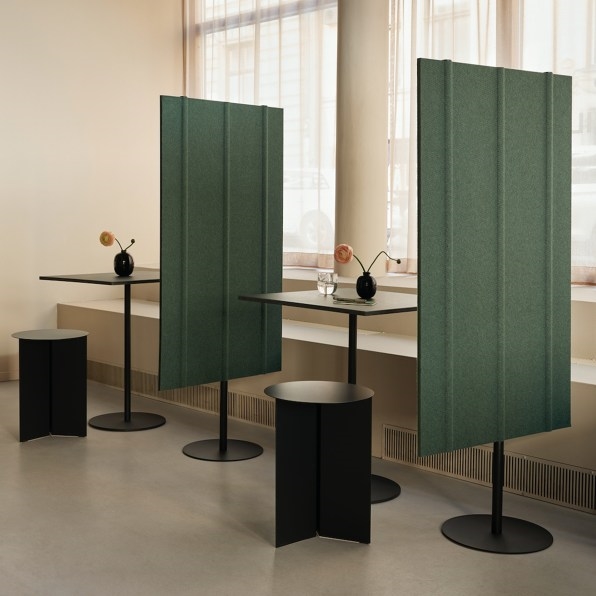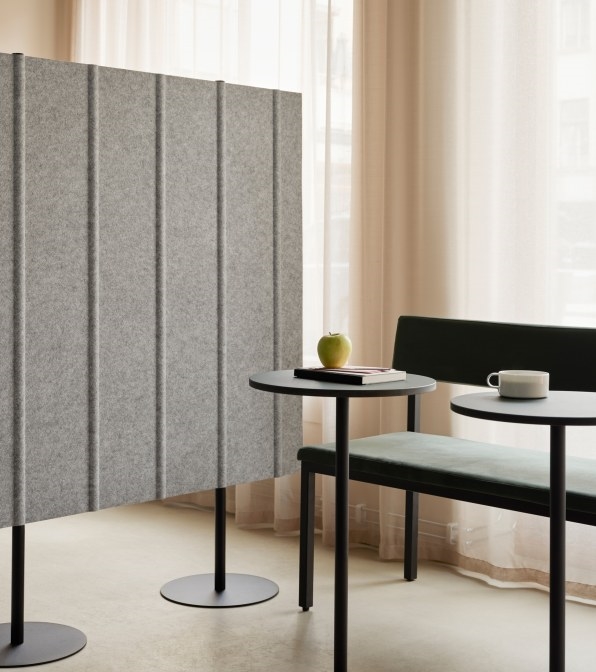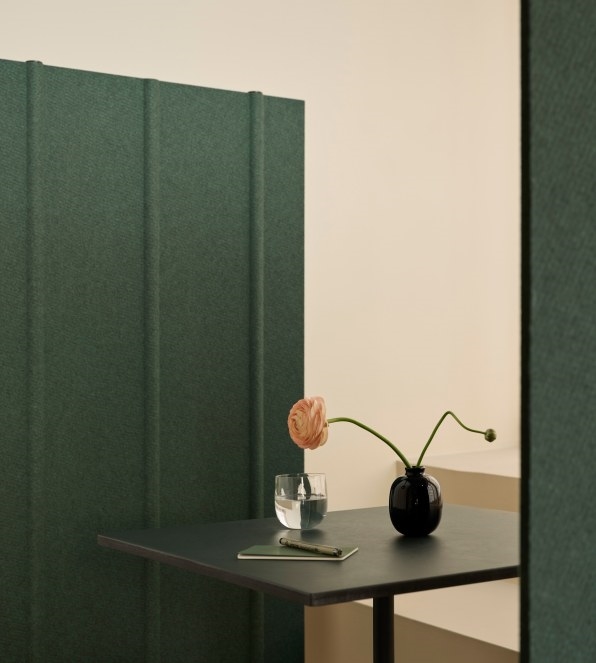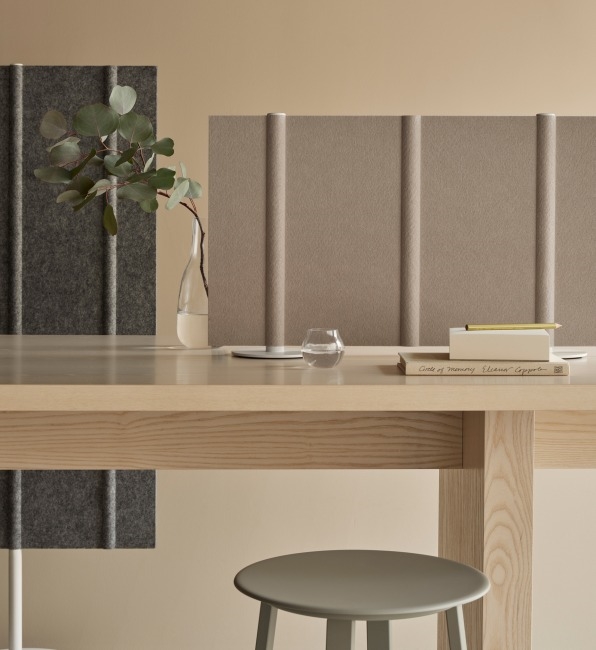Swedish design brand Baux has a seemingly straightforward goal for its products. Instead of combining many raw materials to make its acoustic panels and wall coverings, the company wants to limit itself to as few materials as possible. It’s striving for what cofounder and CEO Fredrik Franzon calls “monomateriality.”

Until now, this has been frustratingly complicated, but a new line of acoustic panels achieves the goal. Using recycled PET plastic to create a kind of sound-absorbing felt, Baux has developed a simple set of standalone acoustic panels that are essentially made of just one thing. Aesthetically, it’s a minimal design that offers companies a way to help divide rooms and reduce noise. Environmentally, it’s a single-material product that can be easily recycled at the end of its life.

“This took a little bit of exercise in the manufacturing and some prototyping, and it wasn’t so easy,” says Franzon. “But it was important to us to keep one material and to avoid glue.”
Baux’s recycled plastic acoustic panels, which come in floor stand and desk-mounted models in nine different sizes, absorb and deflect noise while helping give plastic bottles and other PET-based products a second life. Typically, creating this type of product would require at least two materials—the felt or felt-like plastic and the glue to hold it all together. But adding a binding material like glue makes it difficult or even impossible to recycle those materials down the line.

Baux’s solution uses plastic as both the sound absorber and the binder. The new acoustic panels use about two-thirds certified recycled PET. The other third is virgin plastic that’s heated to bind the material into one solid form. To turn this material into a felt-like panel, the recycled plastic is chipped into small flakes, melted down, and spun into fibers. The result is a soft textile that both absorbs and reflects sound.

Franzon says relying on some virgin plastic is less than ideal, but also better than more resource-intensive alternatives that still rely on glues or complex manufacturing. Hemp, for example, is a material Baux hopes to use one day, but the research is still underway to develop an organic binding material. “Sometimes, there are new, exciting materials coming up but what people don’t see is that the logistics and the handling and the cleaning of that material actually emits so much CO2 it’s not worth it,” he says. “Some innovations are great, but they’re only tested in a lab. In order to make change, we need to have some industrial process.”
Though it’s unable to use completely recycled plastic, the molding process Baux has developed for this line of acoustic panels takes advantage of existing supply chains for readily available recycled PET. Franzon says this supply chain has been affected by the pandemic, but the plastic is still accessible, and the resulting panels are being completely recyclable. It’s a benefit of monomateriality that most other products can’t yet offer.
“We need to see the whole chain,” Franzon says. “We need to take care of the circularity of the product.”
(22)